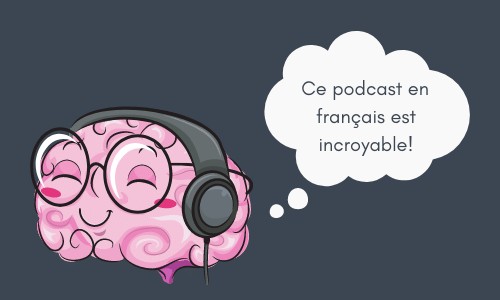Learning French can feel overwhelming with so many resources available. Many recommendations prioritize affiliate sales over genuine learning effectiveness, leaving you unsure where to start. Forget outdated software and expensive audio courses. This guide provides a tailored toolkit, focusing on proven methods and free resources to help you achieve fluency, regardless of your current level.
Building a Strong Foundation: Habits and Goals
Before diving into resources, understand that fluency requires more than just tools. Cultivating effective learning habits is crucial for success.
1. Consistency is Key: Make Learning a Habit
Consistent practice is paramount. Turn learning into a daily habit by establishing cues and rewards. A simple calendar reminder can be your cue, while the inherent joy of learning should be your reward. Choose engaging resources to make the process enjoyable.
2. Structured Learning: Commit to Regular Practice
Create a realistic weekly plan outlining specific activities and durations. For example:
- Monday: 25 minutes of French podcast listening after work.
- Wednesday: 15 minutes of app-based exercises before work.
- Saturday: 45-minute French class.
3. Optimize Learning: Study in Short Bursts
Language learning is mentally demanding. Instead of marathon study sessions, opt for frequent, shorter bursts (15-45 minutes) to maintain focus and maximize progress.
4. Goal-Oriented Learning: Define Your Objectives
Align your resource choices with your goals. If conversational fluency is your aim, prioritize speaking and listening practice through podcasts, tutors, or language partners over excessive app use.
Best Way to Learn French for Beginners
Building Vocabulary and Grammar
Podcasts for Beginners
Immerse yourself in authentic French pronunciation from day one. Even if you’re a beginner, podcasts can be beneficial. Try these:
- Language Transfer: Free and structured, perfect for foundational learning.
- Duolingo French Podcast: Engaging stories told in French and English.
- News in Slow French (For Beginners): Subscription-based news with transcripts. (Paid)
Language Learning Apps
Apps can supplement vocabulary and grammar acquisition:
- Free: Duolingo, Memrise
- Paid: Mondly, Lingodeer, Babbel
Speaking Practice for Beginners
1-on-1 Tutoring
While more expensive, private lessons offer personalized feedback and rapid progress. Online tutoring provides cost-effective options ($15-$30/hour). Choose platforms with trial sessions and avoid restrictive subscriptions. LanguaTalk offers vetted tutors and free trial sessions.
Group Classes
Local group classes offer a social learning environment but may lack personalized attention. Costs are comparable to online tutoring.
Essential Tools for Beginners
- Dictionaries and Translators: Reverso, WordReference, Linguee (prioritize examples in context).
- Verb Conjugators: LanguaTalk, WordReference, Reverso.
- Pronunciation Help: Forvo (a pronunciation dictionary).
- Notebook: Handwriting enhances memorization.
Best Way to Learn French for Basic Level (A2)
This section builds upon the beginner stage, focusing on expanding skills and utilizing more advanced resources.
Enhancing Listening Skills and Vocabulary
Podcast Recommendations for A2 Level
- LanguaTalk Slow French: Slow-paced conversations about French culture and language with transcripts.
- Inner French: Engaging discussions on various topics, suitable for early A2.
- Duolingo French Podcast: Continues to be helpful at this level.
- French Your Way: Clear explanations of grammar, idioms, and culture.
Utilizing Netflix
Immerse yourself in French shows with French subtitles. Start with easier options and gradually progress to more challenging content. Control playback speed as needed.
News in French
Watch or listen to French news broadcasts. The clear pronunciation and familiar topics aid comprehension. Try TV5, Radio France Internationale (RFI), or Euronews.
Language Learning Apps for A2
Use apps strategically to complement other learning activities:
- Free: Beelinguapp, Drops, Memrise, Duolingo, Clozemaster
- Paid: Mondly, Lingodeer, Babbel
Speaking Practice for A2 Level
Continue with 1-on-1 tutoring, consider group classes, or explore language exchange meetups (Meetup, Tandem, HelloTalk).
Language Exchange Considerations
Language exchanges offer budget-friendly practice but can be less efficient due to divided time and potential compatibility issues. Exercise caution when using online platforms for language exchange.
Supporting Tools for A2
Continue utilizing dictionaries, verb conjugators, Forvo, and a notebook. Focus on noting down phrases and sentences.
Best Way to Learn French for Early Intermediate Level (B1)
Refining Skills at the B1 Level
Podcast Recommendations for B1
- LanguaTalk Slow French: Still beneficial for review and consolidating knowledge.
- Inner French: More accessible at this level.
- Duolingo French Podcast: Can be used for lighter practice.
- French Voices: Interviews with native speakers at natural speed.
News and Netflix for B1
Continue leveraging news broadcasts and French shows on Netflix. Challenge yourself with faster playback speeds and more complex content.
Language Learning Apps at B1
Apps should play a secondary role to active speaking and authentic content consumption:
- Free: Beelinguapp, Drops, Memrise, Clozemaster
- Paid: Mondly, Lingodeer, Babbel.
Speaking Practice at B1
Prioritize 1-on-1 lessons, group classes, or language exchanges. Focus on fluency and refining specific areas of weakness. Continue practicing self-talk throughout the day.
Conclusion
The best way to learn French is to tailor your approach to your specific level and goals. Focus on consistent practice, active speaking, and immersion in authentic content. Utilize the recommended resources strategically, prioritizing those that align with your learning style and objectives. Bonne chance!
